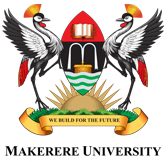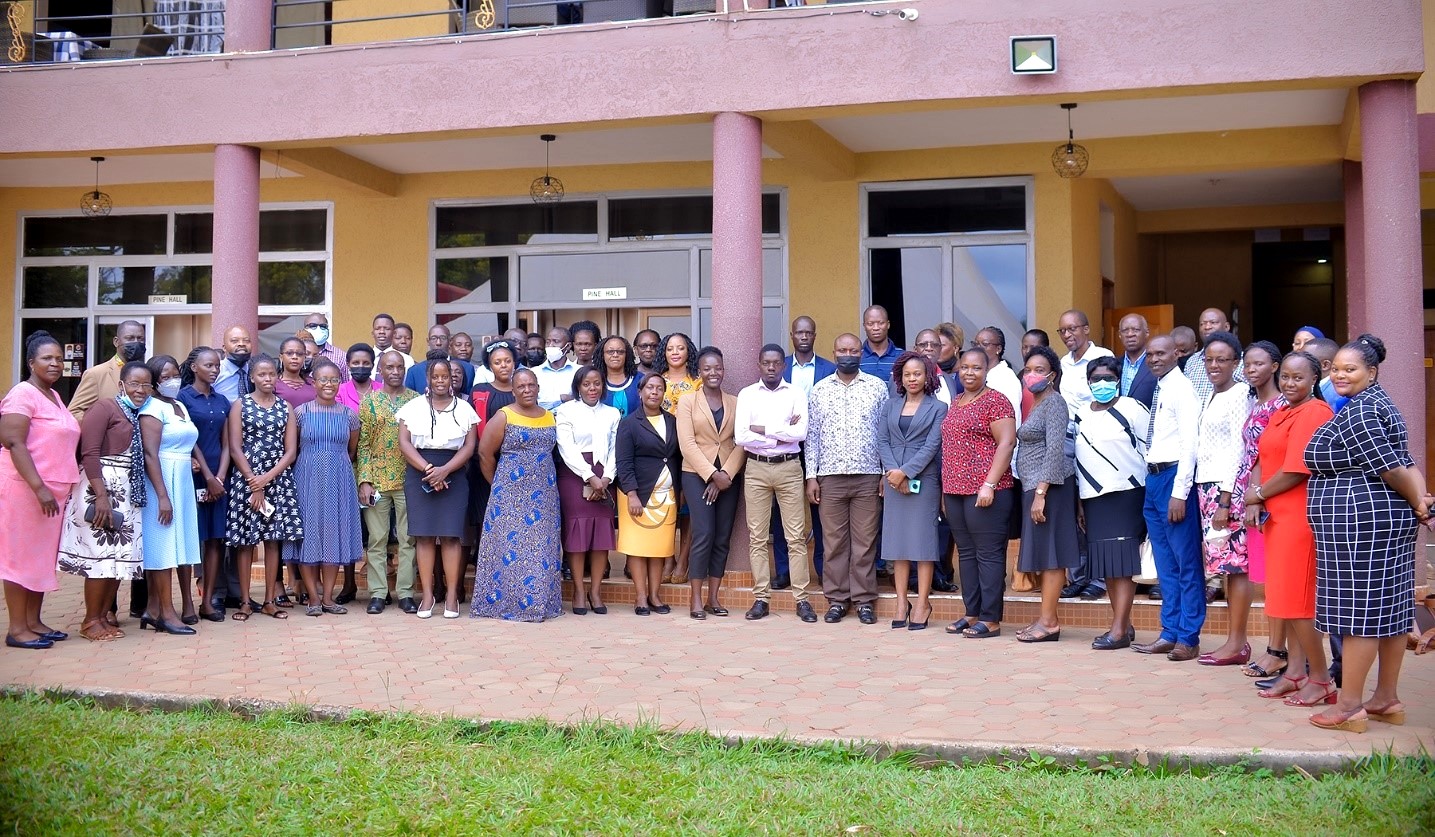The Vice Chancellor’s Roster of 100 to investigate Sexual Harassment at Makerere University has called upon the University Leadership to reinforce its commitment and support toward elimination of violence, abuse and sexual harassment at the university. This was during the two days (14th– 15th June 2022) of the Refresher Training that was organized by Makerere UniversityGender Mainstreaming Directorate in partnership with UN Women.
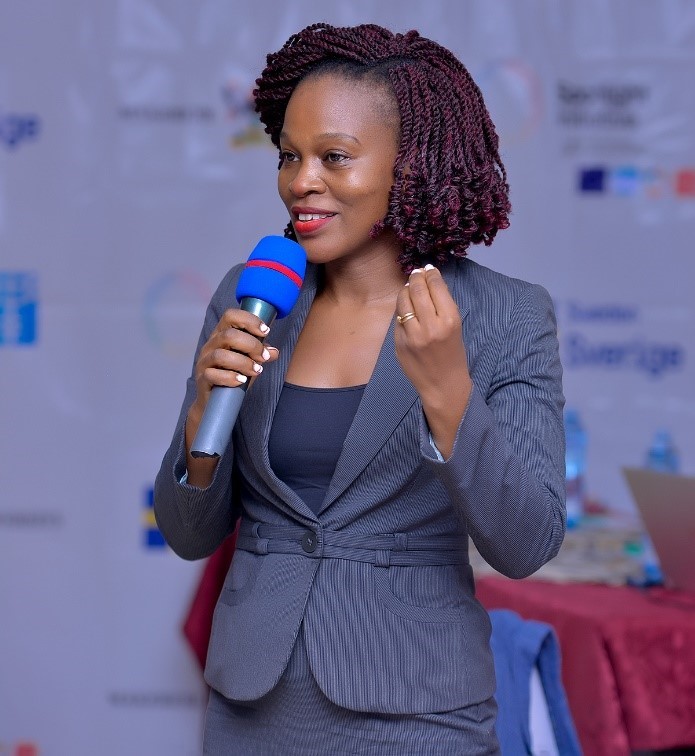
In line with section 18 part (a) of Makerere University Policy and Regulations against sexual harassment 2006 (as amended), the Vice-Chancellor on 1stAugust 2019, appointed 100 members of the Vice Chancellor’s Standing Roster to investigate sexual harassment.
According to Makerere University Policy and Regulations against Sexual Harassment, the Vice Chancellor’s Roster of 100 includes well-selected persons of integrity from which ad-hoc committees will be drawn to investigate specific reported complaints of sexual harassment. The Roster represents all categories of groups in the University community that is; academic, administrative, and support staff, students (undergraduate and postgraduate) as well as all hierarchical ranks within those categories.
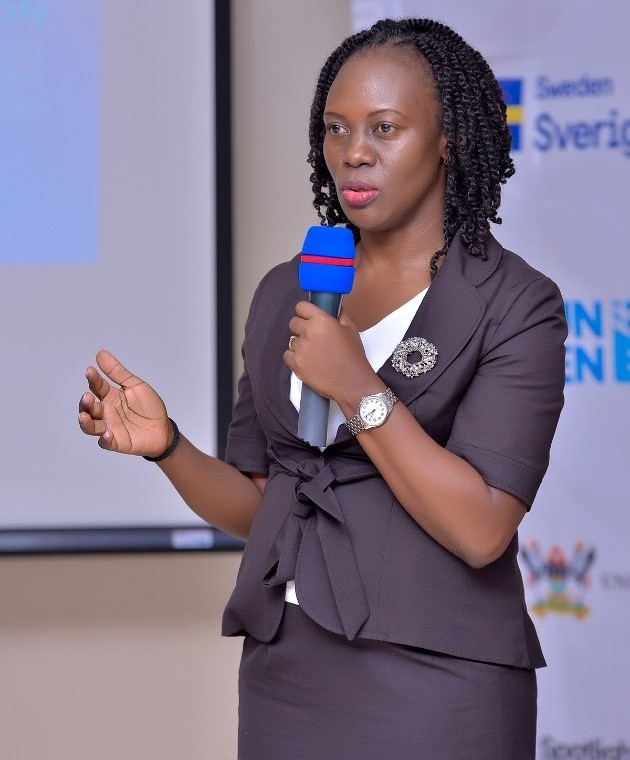
The team appreciated the University Management for taking a bold step aimed at breaking the power-authority chains that had acted as barricades to perpetrators and protected them as untouchables. They further appealed to the University leadership to always cooperate and support the teams/members investigating sexual harassment cases. “We need back up from the leadership to ensure that however powerful a person is, as long as they have been mentioned in any Sexual Harassment scandal, they are not protected.”
During the training, the team recognized the critical importance of their work and also highlighted the possible risks involved when investigating sexual harassment cases including death threats to both the victims and investigators. In addition, the team recorded the need to intensify sensitization campaigns in order to reduce the knowledge gap on Gender-Based Violence, abuse, and sexual Harassment that exists among staff and students as well as the wider University community.
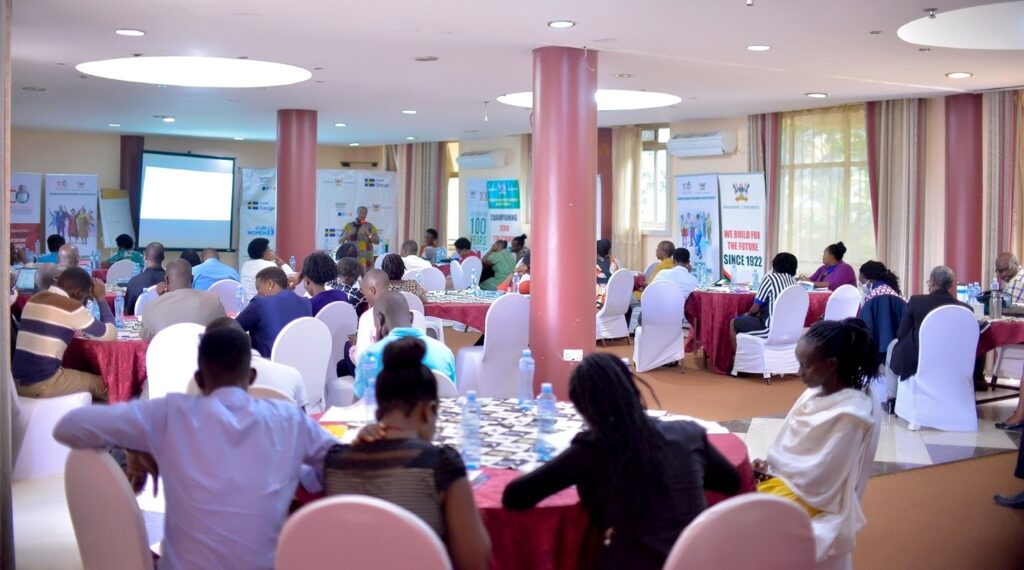
Sharing milestones and experiences
The team also shared experiences, and progress achieved throughout the two years of executing their work. In a presentation made by Ms. Susan Mbabazi, the Principal Gender Officer -Gender Mainstreaming Directorate, since 2019, the VC’s Roster of 100 has been able to investigate to conclusion eight (8) cases out of the twenty-two that were reported.
“Twenty-two cases have been reported for the last two years, eight (8) were investigated to conclusion of which five (5) were successfully handled and three (3) were acquitted, one (1) case has been referred to the police; Three (3) cases were overtaken by events and they lost jurisdiction and one (1) case was withdrawn,” she said.
Ms. Mbabazi noted that the results indicate a stronger step that has been taken by the team to execute their duties amidst recognizable challenges including the COVID-19 pandemic that hit the world for two years. She was optimistic that after the lockdown, their work will be much easier, highlighting the Nine (9) cases that are currently being investigated.
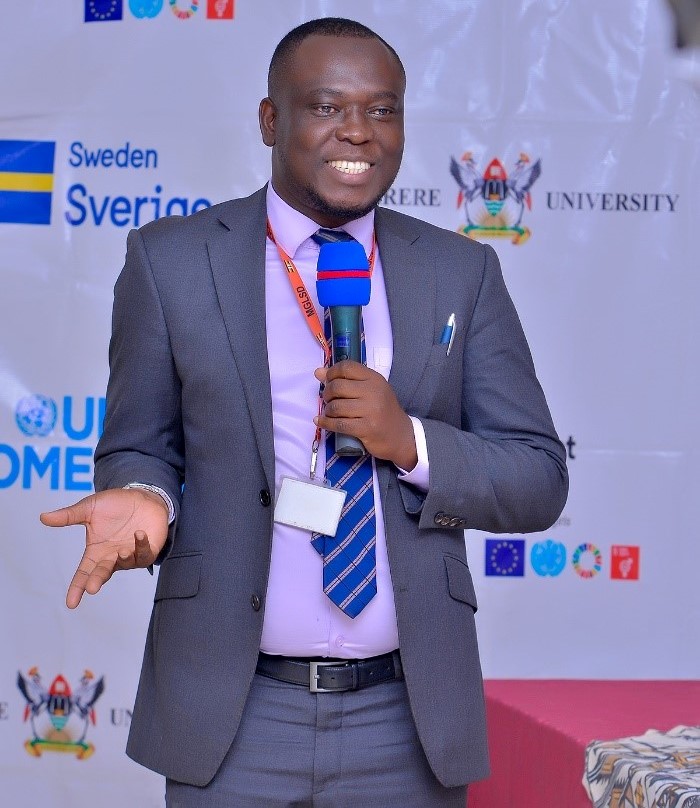
In the same training, participants also reflected on the Makerere UniversityGender Equity Policy and Policy and Regulations against Sexual Harassment as key tools in the fight against the vice at the university. In an interactive session conducted by the Director of Gender Mainstreaming, Dr. Euzobia Mugisha Baine, the team called for an enhancement in the dissemination and communication of the two policies to both staff and students.
“It is high time we utilize all the communication and information points of the university to communicate and emphasize the importance of the two policies. The extended knowledge of the policies should be one of the key performance indicators for the University and students’ leadership,” they noted.
In a speech read by Ms. Nina Asiimwe Byarugaba, the Deputy Country Representative of UN Women Uganda Ms. Adekemi Ndieli, commended Makerere University for the review and production of the Policy and Regulation Against Sexual Harassment; noting that the policy provides the much-needed institutional framework to effectively respond to sexual harassment issues in a well-coordinated, coherent fashion, one that will particularly promote perpetrator accountability.
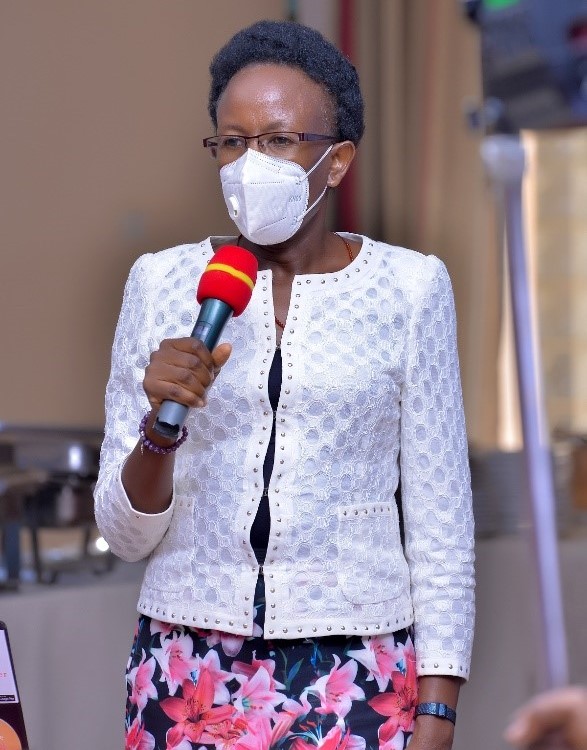
“UN Women in Uganda is committed to ending all forms of violence against women and girls. We recognize that ending violence against women and girls is a critical move to ensure that they have access to justice. We emphasize that access to justice is an essential ingredient for effective, accountable, and gender-responsive to the realization of women’s and girls’ rights which cannot be denied,” she said.
Noting that violence against women and girls is highly pervasive, entrenched and normalized in Uganda, Ms. Ndieli, stressed, that although efforts have been put in place to abate it, through legislation and sensitization of the relevant duty bearers on how to effectively manage gender-based violence cases, obtaining full protection and accountability of GBV crimes remains a challenge.
“We are mindful of the fact that efficient and effective management of gender-based violence cases requires extensive preparation, specific skills, substantive knowledge and resources, and the Policy and Regulation Against Sexual Harassment is a critical solution to these needs,” she noted.
She extended sincere appreciation to the Gender Mainstreaming Directorate and Makerere University for conducting a refresher training for members of the Vice Chancellor’s Roster of 100 as a follow-up on progress as well as re-equipping the team with skills and techniques for addressing some of the persistent challenges of access to justice for women and girls.
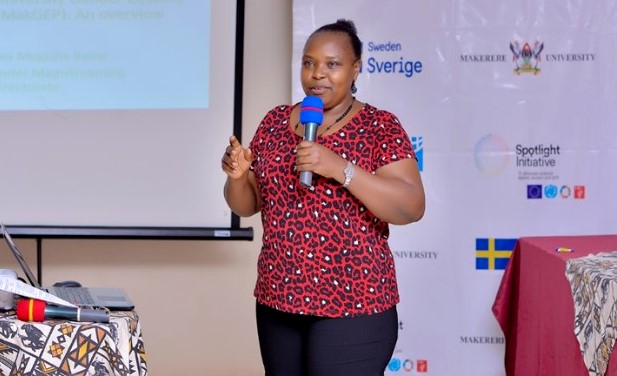
Members also highlighted the role of men in the elimination of gender-based violence and particularly, sexual harassment among communities. In a presentation made on Male Engagement in Gender equality interventions: What can men do to work with women in challenging sexual harassment and gender-based violence at Makerere University, Dr. Julius Kikooma noted the manner in which the socialization processes are embedded within the men’s sexuality and their psyche is ill-explored. According to him, the socialization processes that men undergo in their sexual development can lead them toward normalizing sexual violence.
He called for collective efforts to harness positive masculinities to promote an educational environment that is free of sexual harassment. In the same spirit, Dr. Kikooma urged the Makerere University community to open up opportunities to question hegemonic beliefs and practices upon which harmful forms of masculinities in Higher education institutions are constituted.
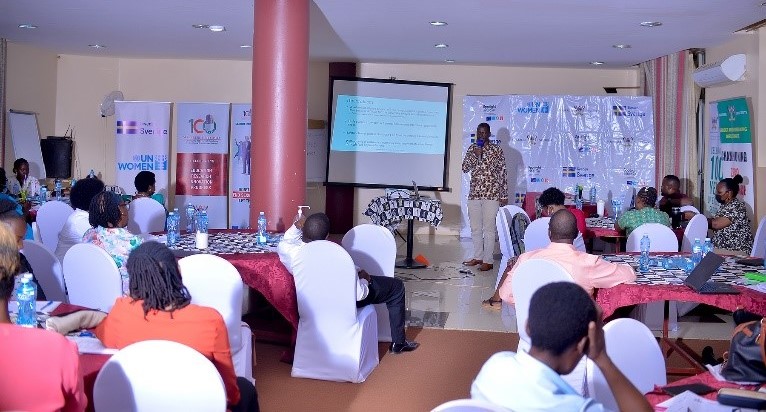
“We need to rethink and re-imagine institutions of higher learning as intellectual spaces with Institutionalized structures and spaces that promote conversation on progressive male behaviors and practices,” he stated.
Participants were also engaged on:
- Legal and Policy Frameworks for Gender-Based Violence and Violence against Women and Girls by Mr. Mayanja Idi Mubarak, Principal Women in Development Officer- Ministry of Gender, Labour and Social Development
- Sexual Harassment Prosecutions; Lessons from the Office of the Director of Public Prosecutions by Samali Wakooli, Assistant Director of Public Prosecutions and Head of Gender Children and Sexual Offences Department.
- Sexual Harassment Investigations; Lessons from the Uganda Police Force by Rose Nalubega, Commissioner, Sexual, Children Offences and Trafficking in Persons Department, Directorate of CID, Uganda Police Force.
- Strategies for effective staff and student mobilization against sexual harassment by Prof. Fred Babweteera
